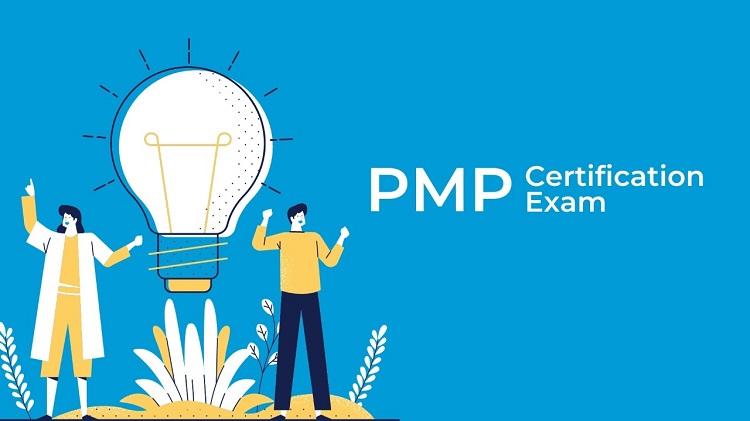Do you want to move up in your profession and get a management job that pays well? Good news! If you have the proper training and education, you can work your way up to the top jobs in management. If you want to advance in your management career, you can choose from several high-paying jobs. When you understand your possibilities, it can be easier to pick which stance to pursue. To assist you, we have curated a list of the highest-paid management jobs in the USA, including their primary duties and average salaries.
Which Are the Highest Paying Management Jobs in the USA?
In the United States of America,
more than 7.28 million people work as managers. If you are a strong team leader who enjoys overseeing large projects and making tough decisions, you will be well suited for a management role. Furthermore, management jobs are often financially rewarding. So, look at the following top ten highest-paying manager jobs in the USA, which are playing significant roles:
1. Chief Executive Officer
In the United States, there is a very high demand for CEOs. CEOs, also called executive directors, managing directors, or presidents, run a company or organization as a whole. From 2021 to 2031, the number of jobs for top executives is expected to grow by 6%, which is about as fast as the average for all jobs. Over the next ten years, there will be an average of 318,100 openings for top executives each year. Chief Executive Officers in the USA make an average salary of $109, 906 per year.
Here are the things that the CEO is in charge of:
◉ Set up and carry out the goals, policies, and procedures of a department or organization
◉ Manage and keep an eye on an organization’s finances and budget
◉ Evaluate financial statements, sales reports, and other performance indicators
◉ Manage the general things that have to do with making products and giving services
◉ Converse with other executives, staff, and board members about how things are running in general
2. Sales Manager
Sales is a core component of the American economy, employing a substantial chunk of the working population in the United States. As a result, being a sales manager is a viable career path in management. According to the US Bureau of Labor Statistics, sales manager employment is expected to grow 5% between 2021 and 2031. If you enjoy the challenge of selling and the opportunity to inspire others, a career as a sales manager will allow you to earn a six-figure salary while utilizing your natural salesperson personality. A Sales Manager’s annual salary is approximately $76,204.
The sales manager is responsible for the following tasks:
◉ Increase the number of customers by using direct sales techniques, cold calls, and business-to-business marketing visits
◉ Sales figures are projected and analyzed to determine the profitability of products and services
◉ Address and resolve customer complaints
◉ Monitor consumer preferences to inform sales and marketing strategies
◉ Manage the finances of the sales team, including budgeting and expense approval
3. Financial Manager
The job perspective for financial managers is good. From 2021 to 2031, the demand for these jobs is expected to grow by 17%, which is higher than the average for most professions. In addition, financial managers work in many places, like banks, investment firms, and insurance companies. The average salary of a financial manager in the United States is $101,862 per year.
Financial manager typically do the following:
◉ Make financial statements, reports on business activity, and projections
◉ Monitor financial data to ensure that legal requirements are met
◉ Analyze market trends to make the most money and find ways to grow
◉ Supervise the people who do budgeting and financial reporting
◉ Review the financial reports of the company and look for ways to cut costs
4. Tax Manager
According to global outplacement, the position of “tax manager” is one of the hottest jobs in the United States. Tax managers work for organizations to handle tax reporting, ensure compliance with tax laws, and assist with public stock offerings and mergers. According to research, over 18,522 tax managers are currently working in the United States. Tax managers earn an annual salary of $100,403 on average.
A tax manager responsibilities are as follows:
◉ Accurately preparing and timely filing federal and state tax returns
◉ Following changes in tax legislation
◉ Creating tax strategies to help clients stay tax-compliant
◉ Identifying and developing tax solutions
◉ Responses and schedules are being completed in preparation for income tax audits
5. Architectural and Engineering Manager
Engineering and architecture projects require a significant amount of effort. As a result, architectural and engineering managers are in high demand. Architectural and engineering managers’ employment is expected to grow by 6% between 2016 and 2026. Moreover, the expansion of employment will largely reflect the expansion of the industries in which these managers work. Architectural and engineering managers earn an annual salary of $124,804 on average.
Architectural and engineering managers typically perform the following tasks:
◉ Create detailed plans for the creation of new products and designs
◉ Determine the staff, training, and equipment requirements
◉ Propose budgets for projects and programs
◉ In charge of research and development projects that result in new products, processes, or designs
◉ Examine the technical accuracy of their employee’s work
6. Medical Manager
Working in health care can be extremely rewarding in a variety of ways. Medical and health services managers plan, direct, and coordinate healthcare providers’ business activities. According to Policy Advice, by 2023, “the nation’s health spending will total $4.3 trillion.” On a global level, the US is one of the countries that spend the most money on health care. On average, 56,600 openings for medical and health services managers are expected each year over the next decade. As a result, we can anticipate future career growth for medical managers. The average salary of a medical manager is $102,059 per year.
Typical roles and responsibilities of a medical manager are:
◉ Taking care of how a clinic, office, or hospital department works day-to-day
◉ Training both new and current workers on new rules, policies, and procedures
◉ Attending board meetings regularly
◉ Making sure that patients and their families in different units get good care
◉ Making sure that nursing units and departments follow legal policies and laws and are up to date on them
7. Computer and Information Systems Manager
If you want to work in technology, becoming a computer and information systems manager is a perfect way to make money while doing something you enjoy. Because it is an excellent position that will allow you to play a critical role in directing all organizational computer-related activities. According to the Bureau of Labor Statistics, managers of computer and information systems make very good money. Computer and information systems managers earn $97,797 per year.
Here are the top responsibilities performed by computer and information systems manager:
◉ Reviewing the organization’s computing needs and consulting with end-users and key stakeholders to determine computing plans
◉ Managing all computer-related personnel, such as programmers, support specialists, analysts, and others
◉ Managing cybersecurity protocols, backup procedures, and other data integrity and security processes
◉ Budgeting for information technology, scheduling computer and system upgrades, and managing network access for all users are all responsibilities
◉ Investigating new technologies to ensure that the organization is current on technological innovations
8. Compensation and Benefits Managers
Compensation and Benefits Managers play a critical role in attracting and retaining the talent that keeps a company running. There are currently 6,472 compensation and benefits managers working in the United States. Because compensation and benefits manager positions typically pay well, competition for jobs will be fierce. They earn an average annual salary of $94,712 per year.
A compensation and benefits manager’s responsibilities include the following:
◉ Assessing and changing existing compensation and benefits programs, policies, and procedures
◉ Creating and putting in place new compensation and benefits programs, policies, and procedures
◉ Ensuring that all programs, policies, and procedures are following current legislation
◉ Negotiating benefit plans and resolving benefit-related issues with third-party services
◉ Helping the HR team with recruitment and talent management
9. Project Manager
Project managers and project management skills are in high demand. They can be found in nearly every industry and business. They are critical in assisting the companies they work for to achieve business objectives and strategic goals. Emsi Burning Glass predicts that project manager jobs will grow by 2.3% over the next ten years. A project manager’s annual salary in the United States is $83,690.
The core responsibilities of a project manager are as follows:
◉ Planning everything from execution to delivery
◉ Guiding the team to achieve a common goal
◉ Managing the resource of time
◉ Monitoring progress and tracking roadblocks
◉ Managing the deployment deliverables
◉ Managing documentation and reports
◉ Coordinating with the clients
Obtaining a
PMP certification provides professionals with excellent career opportunities. Furthermore, it enhances your project management skills and demonstrates your ability to manage difficult projects.
10. Construction Manager
Construction Manager jobs are in high demand as the demand for new construction, rehabilitation, and renovation projects grow. It is a position in charge of supervising and managing construction projects. According to the US Bureau of Labor Statistics, construction manager employment is expected to grow by 10% from 2018 to 2028, with approximately 46,200 new jobs available. This is 5% more than the overall average for all occupations.
Construction Manager duties include the following:
◉ Supervising and directing construction projects from start to finish
◉ In-depth review of the project to schedule deliverables and estimate costs
◉ Monitoring compliance with building and safety regulations by supervising all onsite and offsite constructions
Source: invensislearning.com















